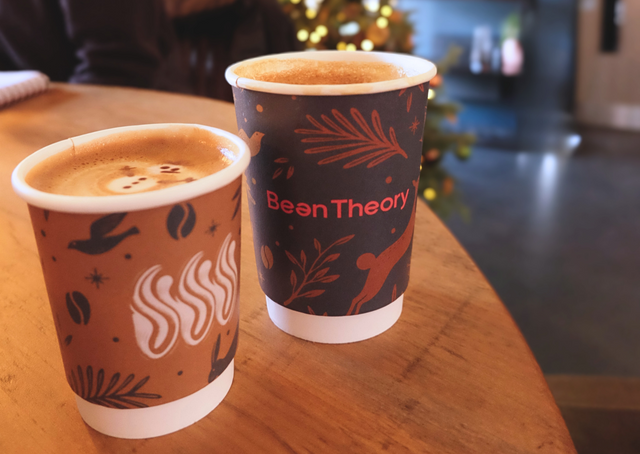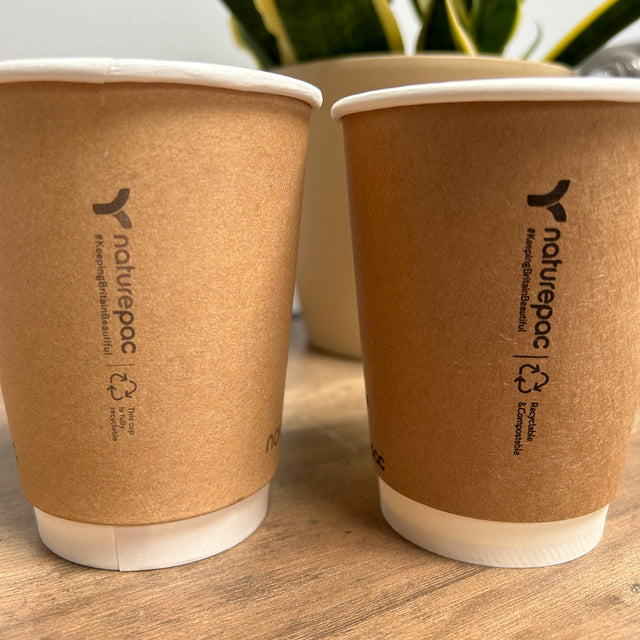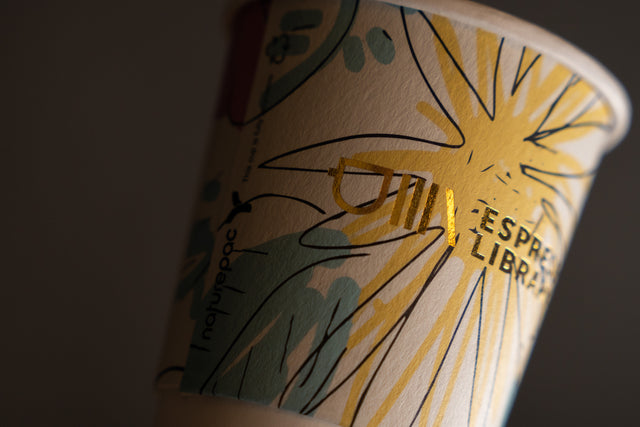
As it will depend on your circumstances, there’s no straight answer. However, I am hoping the below will be able to point you in the right direction.
At NaturePac, we supply four types of packaging;
- Commercially Compostable
- Home Compostable
- Recyclable
- Reusable
For how we define the above, please see our glossary.
Each of these various types of packaging have their pros and cons. What might be the best type of packaging for one business, might not be the best type of packaging for another. You might also decide to have a mixture of packaging types, this is where labelling of the packaging is extremely important, so your customer knows how to dispose of the packaging.
Below are some considerations you need to take into account while deciding which type of packaging is best for you, your business, and your customers. Feel free to call us any time on 01480 309870 to discuss your options in more detail.
Waste Disposal

This is probably the most important element to consider when deciding upon your packaging. As we have explained in previous blogs, Commercially Compostable packaging needs to be processed by a specialist composting facility to ensure it is composted correctly and turned into soil improver. These composting facilities are limited throughout the UK. You need to talk to your waste management company to see if they are able to process Commercially Compostable packaging correctly. When speaking to them, you might find the following questions useful to ensure you are getting the right information:
- Are you able to take Commercially Compostable packaging along with my food waste?
- If so, will the food and packaging waste go to an aerobic in-vessel composting facility?
If the answer to the above is ‘yes’ and you have a ‘closed’ site where the majority of your customers will dispose of their packaging on your site, then Commercially Compostable packaging might be the best answer for you.
If your waste management company does not use an aerobic in-vessel composting facility, your compostable packaging will not be processed correctly. If this is the case you could contact a waste management company who specialises in Commercially Compostable packaging, like First Mile.
The alternative is to use Recyclable packaging. Most waste management companies will be able to provide you with a DMR (Dry Mixed Recycling) bin, or separate bins for plastics and papers. At NaturePac, we have ensured our Recyclable packaging is truly recyclable. All our recyclable paper and card products will be able to be recycled through normal wastepaper streams. The Recyclable plastics we use are widely recycled throughout the UK and so will be able to be recycled through the DMR bins or any plastic recycling bin.
We have also ensured our recyclable packaging is able to be recycled from your customer’s home throughout the majority of the UK. Recyclable packaging will give your customers more options of how to dispose of their packaging as the vast majority of customers will not have access to a Commercial Composting facility.
The other option to consider is Home Compostable packaging. This packaging is which is designed to be taken home by your customers and composted in their gardens. At the moment there is a limited choice of Home Compostable packaging options, so this choice might not be possible for all your packaging items.
It is important to note, unless otherwise stated, any type of Compostable packaging is not designed to be recycled with other recyclable waste. This is because some of the materials used in Compostable packaging, such as PLA, will actually contaminate recyclable plastics and could deem the whole batch as unusable, causing the batch to be sent to landfill or incinerated.
Type of Food Being Served

Another element to consider is the type of food you are serving. If you are serving particularly greasy foods, the grease could contaminate certain materials to the point where they are no longer recyclable.
If your food is greasy and your waste management company can handle Commercially Compostable packaging, then this could be your best option. If your packaging is being sent off with your food waste to be composted, then it doesn’t matter if it gets contaminated with grease as it is already being processed with food waste and will still be composted.
However, if your waste management company does not accept Commercially Compostable packaging, then we would suggest serving your greasy food in recyclable plastic, such as the rPET bowls. If you want to use paper / card based packaging, then it would be advisable to request a sample of the Brown Kraft Meal Pails, place your food in it for the time period you would expect your customer to be using the packaging for. Then, remove the food and send the meal pail to your waste management company to see if they would still be happy to recycle it.
For non-greasy foods, even if the food is ‘wet’, recyclable packaging could be your best option.
Materials

When choosing your packaging, it is also important to consider the materials the packaging is made from. This is especially important when choosing recyclable packaging. There is a lot of packaging on the market which is sold as ‘recyclable’ but will not actually be recycled. Yes, the item might be technically recyclable, however, because of the material make up, it needs specialist treatment, there is a very high chance that it will not be recycled.
An example of this are the traditional PE lined takeaway coffee cups. These cups are technically recyclable, however, there is only one company in the UK which have the facilities to recycle these PE lined cups. The result is most PE lined paper cups do not get recycled.
At NaturePac, all our packaging items which state they are recyclable can be recycled through normal recyclable waste streams. They do not need any special treatment. We have used materials such as rPET, paper, and card to ensure this. As much as possible, we have ensured we are only using one material within the packaging item. This is to help with the recycling processes. Where we have had to use more than one material to ensure the packaging items does its job, we have ensured the materials can be separated easily within the normal recycling process. An example of this is our NaturePac Double Wall Cups. As well as the card used, they need to have a liner to ensure they do not leak. We have chosen to use the EarthCoat liner as this is removed during the same process as removing the vegetable inks from the cup.
Where possible we are also using post-consumer recyclable material within our packaging. For instance, all our rPET plastic packaging items use an element of recycled PET. In some cases, we have been able to choose items which are made using 100% Recycled PET. All our rPET can then be recycled again throughout the UK.
When considering materials used within your packaging, it is also important to consider the carbon impact of the material. This is not an easy process and something we are working hard on, here at NaturePac. You need to take into account where feed stock for the material comes from (manufactured, grown, recycled), how it is manufactured, where it is manufactured, what energy is used to manufacture it, how it is transported, etc… For more information, please contact us.
Price
As with most business decisions, the cost does have an impact on the outcome. Home Compostable items tend to be the most expensive, mainly because its relatively new technology and the materials are in shorter supply. Commercially Compostable packaging still tends to be more expensive than recyclable packaging.
We believe price should be one of the last factors to consider. You should be led by what is the best environmental option for your business based on the factors above. If you decide that Commercially Compostable packaging is the best option, we have found consumers are normally understandable about increasing your prices slightly to keep your business profitable so you can continue to invest in your local community. Especially if you explain your reasons for the price increase.
So, the answer to ‘what is the best type of packaging for my business?’ is, it depends. You need to spend time considering all the aspects above and then come to a conclusion. If you would like some help in your consideration, please feel free to call us on 01480 309870 and we will be more than happy to help.



